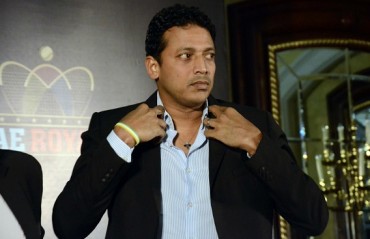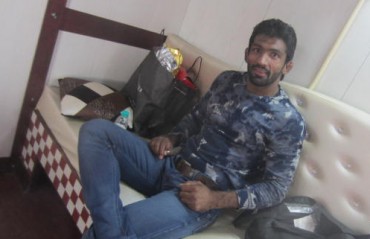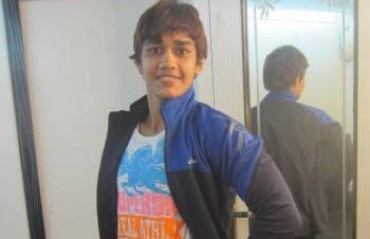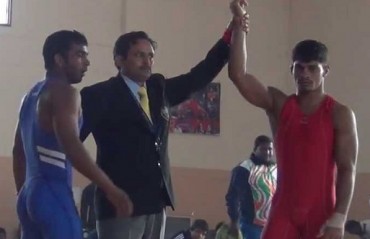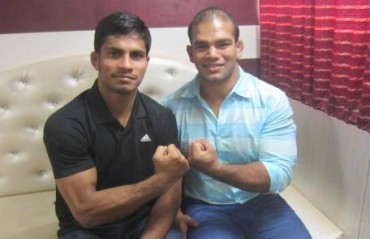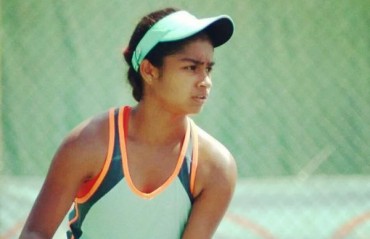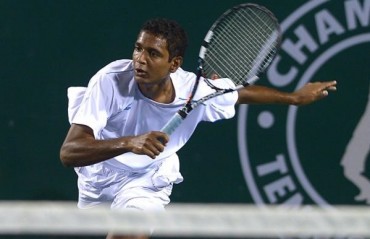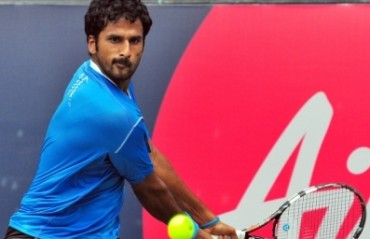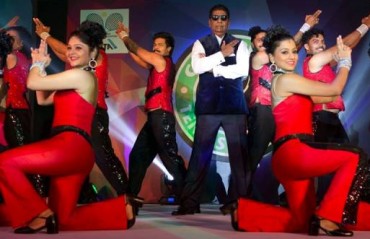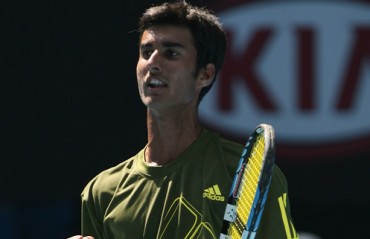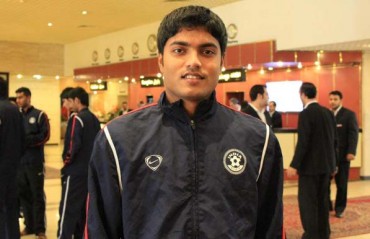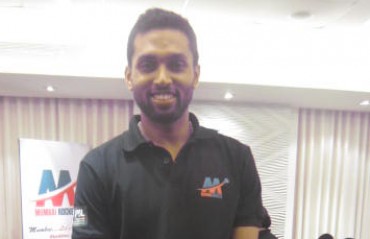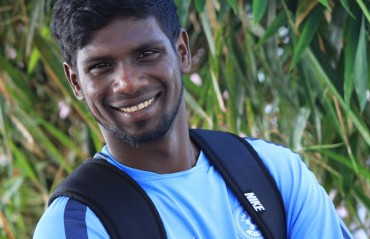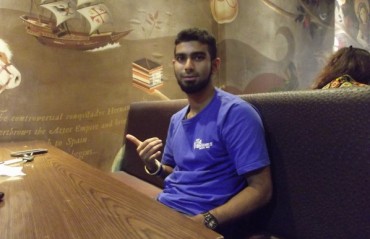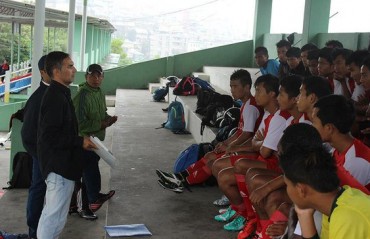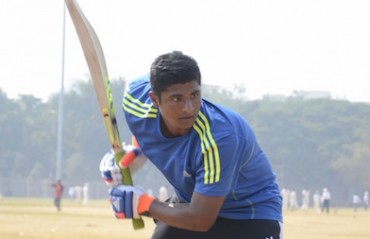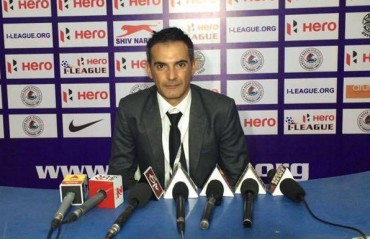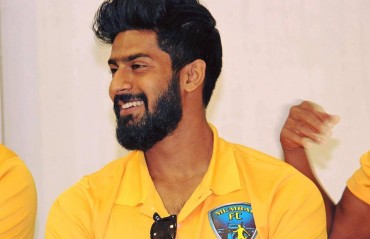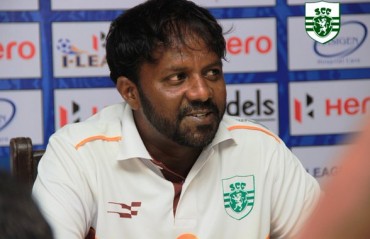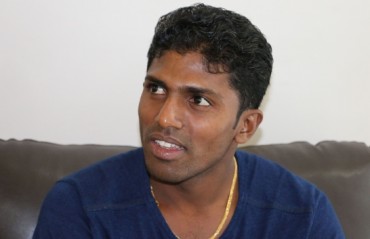#TFGinterview: Coach Bhaskaran hopeful of 4th PKL final for U Mumba, but expects toughest fight yet
- By Chiranjit Ojha

- July 04, 2016
IF THERE'S ONE THING that this current U Mumba team is definitely not lacking, it's spirit.
After a difficult start to their PKL 4 campaign which included a massive loss to local rivals Puneri Paltan, the team has managed to make a decent comeback. Today, they are second on the league table, and the way they put up a fight against Patna Pirates till the last minute and showed composure during their defeat of Dabang Delhi and Bengal Warriors, it's safe to say they are likely to end up in the semi-finals once again. And the majority of credit for that goes to their coach, Bhaskaran Edachery.
Bhaskaran can easily lay claim to being one of the best kabaddi coaches in the world. He's been part of the professional kabaddi scene for decades and in 2014, when the Pro Kabaddi League was established, he bore the responsibility of envisioning its squad from scratch, and molding them into a highly efficient unit. The result is for everyone to see. In the past 3 seasons, U Mumba have always been in the final, winning the trophy once. And under Bhaskaran, the team boasts of 39 wins in 53 games, the best performing team in the league.
Which is why, U Mumba players were highly sought after in the PKL auction. And Bhaskaran had to see some of his major players depart to other teams, including the defensive cornerstone duo of Surender Nada and Mohit Chillar. But speaking to TFG, the legendary coach was unfazed with the departure of proven talent,
"I don't think that'll be much of a problem. The reason our defence was effective in the past seasons was that we had a diverse bunch of capable players in every position, including experienced ones like Jeeva Kumar. So just two players leaving won't be such a big deal, others are eagerly waiting for a chance to step into their shoes."

Bhaskaran made it clear that grooming players to make them fit into a team's schema was what he did for a living, and under him the team was ready to face the challenge of a league that has gotten increasingly competetive over the last two years,
"Our performance this season will definitely match the efficiency of the previous ones. We've always tried to put up an all-round performance with a well-balanced team and this time it's all about taking that legacy forward. I'm 100% sure we are going to give a tough fight for the title once again."
The veteran coach said that he was fascinated by the fierce brand of kabaddi that the PKL has developed for itself. Its challenging new rules, Bhaskaran said, would prompt players to push themselves further by putting them in difficult situations,
"Some of the rules in Pro Kabaddi are different from the international rules. It takes the boys a bit to adjust to that. The changes make the game in PKL much more aggressive than international kabaddi. One single mistake can make you pay a big price, especially in the semis or the final. So the stakes are high, and the players have to push themselves in order to justify their place in the squad and make a career out of it. So what we are trying to do is to honour the trust placed on us by the team management."
In the end it came down to everyone focusing on their own role in the team and devoting themselves to the job, said Bhaskaran, and it didn't make a difference if they were novices or experienced, Indians or foreign players,
"I try to do as much as I can to train and groom the players in my charge. The players we have here are very competent and can hold their own on the mat, and my job is to mold their individual talents into a team strategy, whether they are young or experienced, Indian or foreigners. Even the foreigners we have had in the squad have found it really easy to adjust. They came with a lot of respect for our culture and way of life and playing the sport. So there hasn't been an issue."
And part of the pressure on the players is the intense scheduling of the tournament. Players sometimes play 4 nights in a row, right after travelling to a new city. This makes an already injury-prone sport even more dangerous, and the fans saw a glimpse of that when Telugu Titans player Vinoth Kumar did his knee in during last night's game against Patna Pirates. Bhaskaran, however, didn't sound too worried about it,
"We usually get a day's time to get into the new city and adjust to it. It's hectic but this is how the schedules are made everywhere, the players are professional and can deal with it. And they love travelling, it energizes them. They get to showcase their skills in front of new fans and gain appreciation from different parts of the country. It's good for them."
When it comes to coaching, many Pro Kabaddi teams have taken a new direction in squad management by appointing multiple coaches to address different departments of the game. Bhaskaran said he was happy with the setup at U Mumba - where he undertook the majority of the responsibilities - but was not against the idea of having multiple coaches in a team,
"I have two Arjuna Award winners in my team. When it comes to strategising for games there are few better than them. So I involve them in the process and also encourage the young players to learn from their senior counterparts. But if going forward we can integrate this multi-coach system into kabaddi at every level, I think it will really help with the development of young players. Having multiple coaches specializing in particular departments of the coach works in team sports like football and basketball and it can work in kabaddi too."
And while the senior players have large roles to play under him, Bhaskaran has a long term project going in inside the team too, with its young players who are being trained to play major roles in the team in future seasons,
"The young players need to be brought up to date with the kind of strategic maturity that their seniors have. They have to go through a learning process and being with the team helps with that. I don't think they will have much of an immediate impact this season, but having them around will pay off in two-three seasons."
The more exposure these players, especially the young ones, get to the game, the better it is for their careers and the sport of kabaddi as well, opined Bhaskaran when asked whether having two editions of PKL per year was a good idea,
"Having two seasons a year has done well to expand the reach of kabaddi. Players are visible in action to the fans much longer, and the extra publicity has driven up the money in the sport."
And the effects of Pro Kabaddi were clearly visible, Bhaskaran said, both in India and aborad,
"Countries like Iran, Korea are our biggest competitors in the international level. And PKL has caught the fancy of fans over there too. And if it helps popularise the sport over there, it will help them improve their national teams and make world kabaddi more competitive. And in the end that's a good thing for everyone, because it will push our boys to do even better."
Coming back to his team, U Mumba, Bhaskaran reiterated that they were going to put up a fight to make it to the final for the fourth time and to secure a second title. But the competition, the coach said, was going to come from all the other seven teams this season, instead of two or three major oppoents,
"The teams are very balanced this season, and diverse as well. Some have very good defenders, corners, and raiders too. So I think going forward every single game is going to be tough. And it will be important for the boys to be consistent throughout the season to get the job done."









